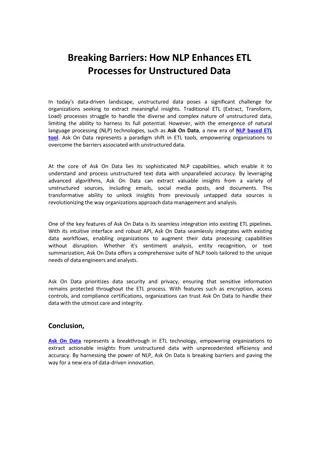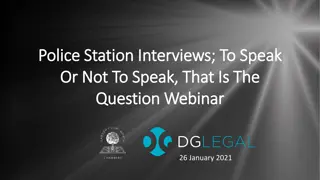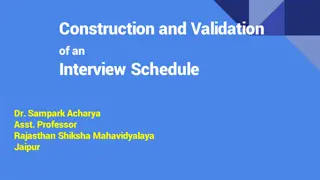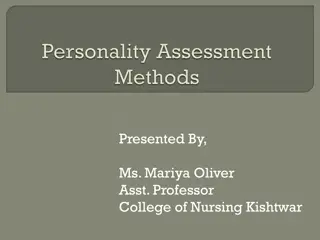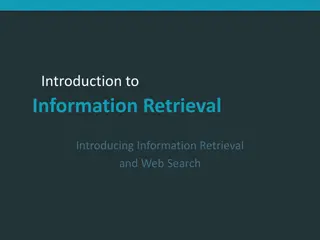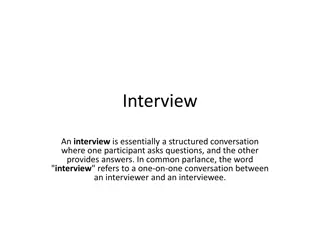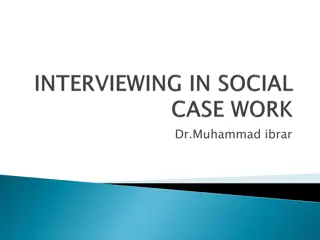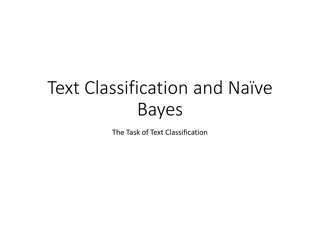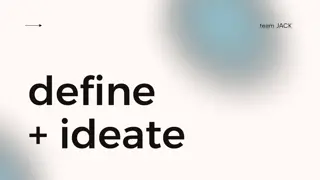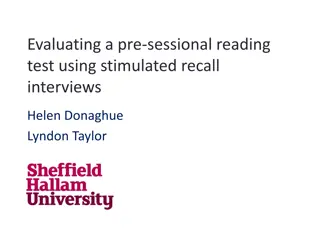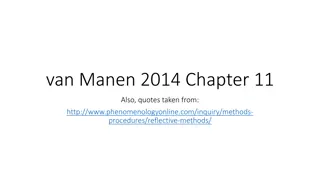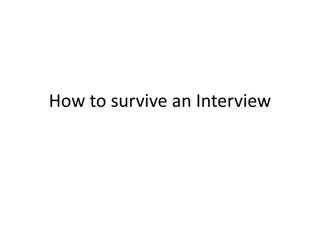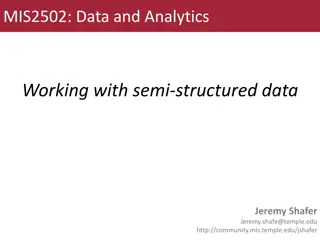Understanding Unstructured Interviews
Unstructured interviews are a form of non-directive interviews where questions are not prearranged. This method allows for flexibility and in-depth responses from participants, but it also comes with practical, ethical, and theoretical strengths and weaknesses. While unstructured interviews offer a more natural conversation flow and honesty from participants, they can be time-consuming and challenging to analyze. Researchers need to be mindful of ethical considerations and the potential biases that may arise during such interviews.
Download Presentation

Please find below an Image/Link to download the presentation.
The content on the website is provided AS IS for your information and personal use only. It may not be sold, licensed, or shared on other websites without obtaining consent from the author. Download presentation by click this link. If you encounter any issues during the download, it is possible that the publisher has removed the file from their server.
E N D
Presentation Transcript
An unstructured interview is an interview in which questions are not prearranged. These non-directive interviews are considered to be the opposite of a structured interview which offers a set amount of standardized questions. The interviewer has complete freedom to vary the interview. They have topics in mind to cover but few pre-set questions. They should make the respondent at ease and will ask them open-ended questions.
Examples: Paul Willis - learning to labour William Labov 1972 black American children and their linguistic techniques
Practical strengths and weaknesses of unstructured interviews. Strengths Weaknesses Interviewer finds it easier to gain honest data. With unstructured interviews you need a trained interviewer who can only interview one participant at a time, this means this method is time-consuming and costly. Qualitative data: interviewer can get in depth answers of the attitudes, feelings and behaviours. Interviewer can ask follow up questions. The interviewer won t ask exactly the same question every time, so it could be hard to make comparisons. Questions can be changed based on the respondents answers. The changing questions also mean it is difficult to replicate the study. The interviewer can change the questions if, over the course of the study they think the hypothesis should change or they want to take the study in a new direction. The data is qualitative which means it is hard to analyse and compare with other pieces of data. They can be time consuming. The interviewer might not be good at developing relationships with their respondents as they are both strangers to each other.
ethical STRENGTHS WEAKNESSES Consent is given as participants are aware of the interview situation. As it s an unstructured interview participants are more likely to be obliged to provide accurate and honest answers as they are trying to identify deeper meaning. Also situation is more informal, therefore participants will feel more comfortable freely discussing their opinions/experiences. This form of interview is preferable for vulnerable groups disclosing sensitive information as the situation is not as formal and potentially less daunting. The safety of participants needs to be addressed, so that discussing potentially sensitive details doesn t trigger participants, such as psychological damage). Interviewer may potentially bias results via how they deliver each question. When interviewing vulnerable groups the issue of anonymity needs to be addressed in order to protect their identity.
Theoretical Strengths Weaknesses The interview is respondent led . This means that the researcher can listen to the answer from the respondent and ask questions based on their answer. High validity due to their informal nature as they make the respondent feel more comfortable like the interview is a normal conversation. The interview is also flexible as the researcher can adapt questions based on the different responses. These types of interviews are difficult to repeat again as each response is unique and depends on the trust and bond between the researcher and the respondents e.g. Willis s lads. This leads to a lack of reliability. Unstructured interviews have a lack of representativeness because they are time consuming and are difficult to get a large sample to be a representation of large population. The interviewers bias might undermine the validity of the interview. This is where the interviewers bias interferes with the results. Their characteristics may also create a bias and effect the validity. The respondents answer depends on the class, gender or ethnicity of the interviewer.



